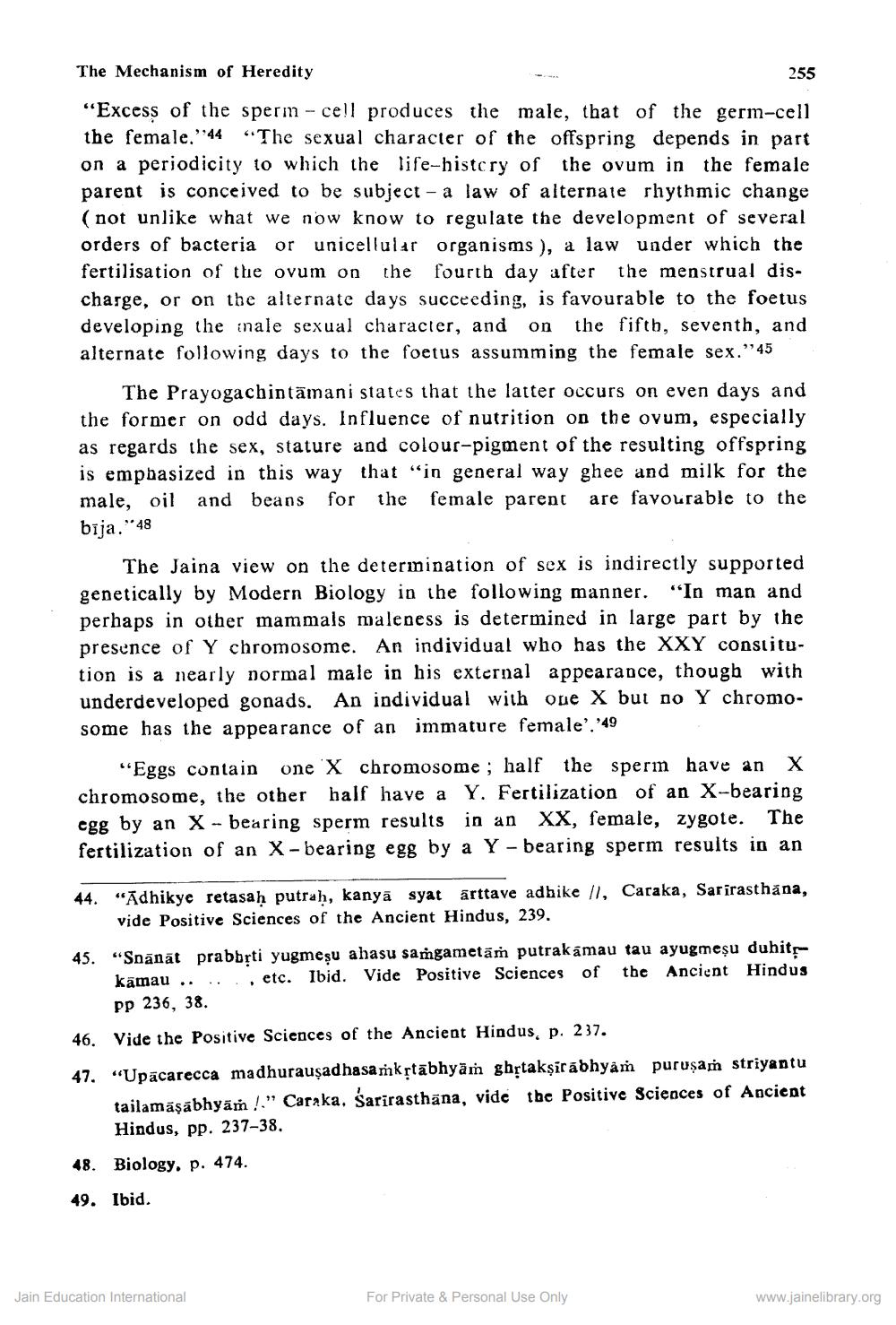________________
The Mechanism of Heredity
255
"Excess of the sperm - cell produces the male, that of the germ-cell the female.":44 "The sexual character of the offspring depends in part on a periodicity to which the life-history of the ovum in the female parent is conceived to be subject - a law of alternate rhythmic change (not unlike what we now know to regulate the development of several orders of bacteria or unicellular organisms ), a law under which the fertilisation of the ovum on the fourth day after the menstrual discharge, or on the alternate days succeeding, is favourable to the foetus developing the inale sexual character, and on the fifth, seventh, and alternate following days to the foetus assumming the female sex.”45
The Prayogachintamani states that the latter occurs on even days and the former on odd days. Influence of nutrition on the ovum, especially as regards the sex, stature and colour-pigment of the resulting offspring is emphasized in this way that "in general way ghee and milk for the male, oil and beans for the female parent are favourable to the bīja." 48
The Jaina view on the determination of sex is indirectly supported genetically by Modern Biology in the following manner. "In man and perhaps in other mammals maleness is determined in large part by the presence of Y chromosome. An individual who has the XXY constitution is a nearly normal male in his external appearance, though with underdeveloped gonads. An individual with one X but no Y chromosome has the appearance of an immature female'.'49
“Eggs contain one X chromosome; half the sperm have an X chromosome, the other half have a Y. Fertilization of an X-bearing egg by an X - bearing sperm results in an XX, female, zygote. The fertilization of an X-bearing egg by a Y - bearing sperm results in an
44. "Adhikye retasah putrah, kanya syat arttave adbike II, Caraka, Sarirasthana,
vide Positive Sciences of the Ancient Hindus, 239.
45. "Spānāt prabbrti yugmeşu ahasu samgametāṁ putrakamau tau ayugmeşu duhits
kamau ...... etc. Ibid. Vide Positive Sciences of the Ancient Hindus pp 236, 38.
46. Vide the Positive Sciences of the Ancient Hindus, p. 237. 47. “Upacarecca madhurausad hasankstābhyāṁ ghệtakşirābhyam puruṣaḥ striyantu
tailamāşābhyāṁ!" Caraka, Sarirasthāna, vide the Positive Sciences of Ancient
Hindus, pp. 237-38. 48. Biology. p. 474. 49. Ibid.
Jain Education International
For Private & Personal Use Only
www.jainelibrary.org




